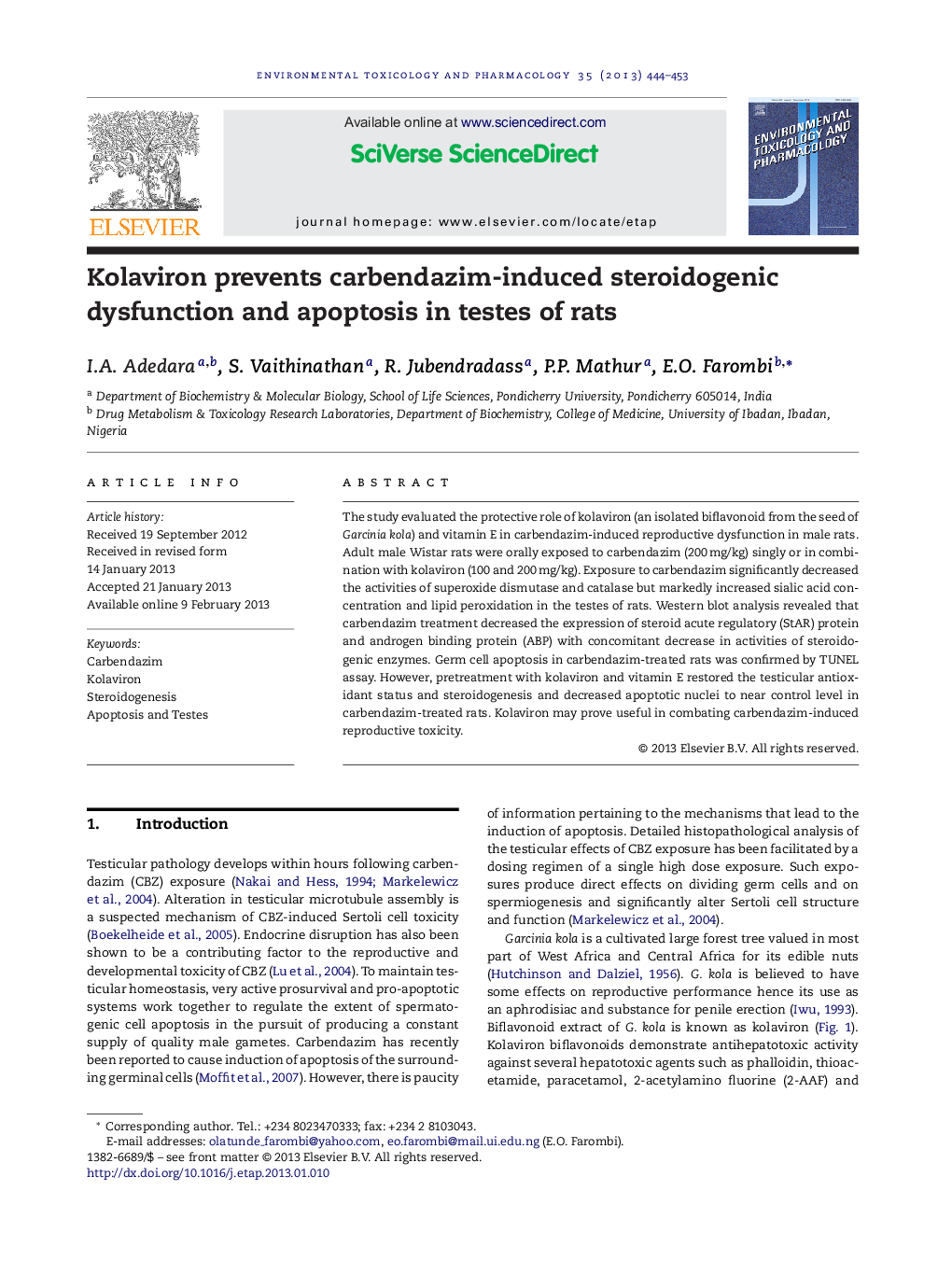| Article ID | Journal | Published Year | Pages | File Type |
|---|---|---|---|---|
| 2583182 | Environmental Toxicology and Pharmacology | 2013 | 10 Pages |
The study evaluated the protective role of kolaviron (an isolated biflavonoid from the seed of Garcinia kola) and vitamin E in carbendazim-induced reproductive dysfunction in male rats. Adult male Wistar rats were orally exposed to carbendazim (200 mg/kg) singly or in combination with kolaviron (100 and 200 mg/kg). Exposure to carbendazim significantly decreased the activities of superoxide dismutase and catalase but markedly increased sialic acid concentration and lipid peroxidation in the testes of rats. Western blot analysis revealed that carbendazim treatment decreased the expression of steroid acute regulatory (StAR) protein and androgen binding protein (ABP) with concomitant decrease in activities of steroidogenic enzymes. Germ cell apoptosis in carbendazim-treated rats was confirmed by TUNEL assay. However, pretreatment with kolaviron and vitamin E restored the testicular antioxidant status and steroidogenesis and decreased apoptotic nuclei to near control level in carbendazim-treated rats. Kolaviron may prove useful in combating carbendazim-induced reproductive toxicity.
► Chemoprotective roles of kolaviron and vitamin E in carbendazim (CBZ)-induced testicular toxicity were investigated in rats. ► Exposure to CBZ resulted in down-regulation of steroidogenic proteins and enzymes in testes of the treated rats. ► Exposure to CBZ induced oxidative stress and increased the TUNEL positive nuclei in testes of CBZ-treated rats. ► Kolaviron and vitamin E restored the testicular antioxidant status and steroidogenesis and decreased apoptotic nuclei. ► Kolaviron and vitamin E may be potential tools in the chemotherapy of CBZ-induced testicular dysfunction.
